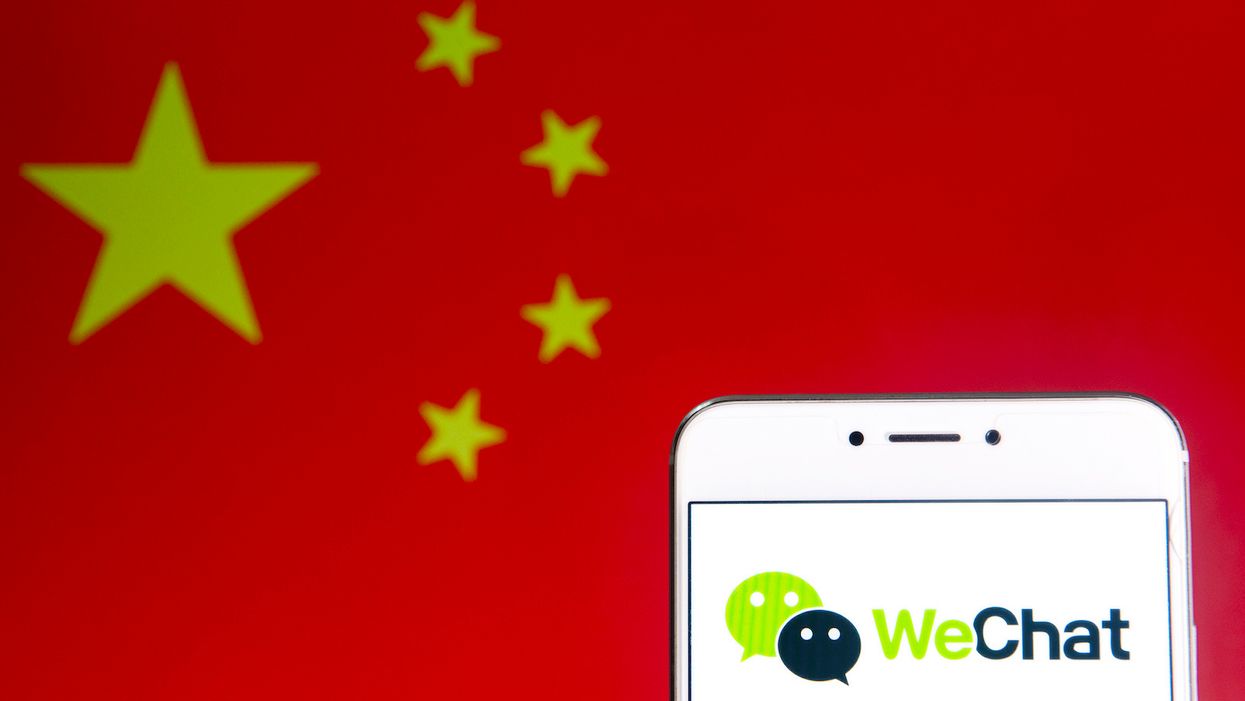
Budrul Chukrut/SOPA Images/LightRocket via Getty Images

'Chinese social media companies receive greater government pressure around critical or sensitive events'
Information about the coronavirus — formally known as COVID-19 — has been censored for months on a pair of Chinese-based social media platforms, and that may have made the spread of the disease worse, according to new research.
According to a study published Tuesday by the University of Toronto's interdisciplinary research body, Citizenlab, the Chinese social media apps YY and WeChat have been censoring various keywords related to the coronavirus outbreak since Dec. 31 and Jan. 1, respectively.
Ultimately, the researchers found that the censorship included information about the virus as well as critical and neutral references to government officials and their handling of the outbreak.
"On December 31, 2019, a day after Dr. Li Wenliang and seven others warned of the COVID-19 outbreak in WeChat groups, YY added 45 keywords to its blacklist, all of which made references to the then unknown virus that displayed symptoms similar to SARS (the deadly Severe Acute Respiratory Syndrome epidemic that started in southern China and spread globally in 2003)," the study found. After sounding the alarm, Li was reprimanded by police for his efforts and later died of the virus.
When it comes to censorship on WeChat, the researchers found that the number of blacklisted keywords actually increased over time.
"Between January 1 and February 15, 2020, we found 516 keyword combinations directly related to COVID-19 that were censored in our scripted WeChat group chat. The scope of keyword censorship on WeChat expanded in February 2020," according to the paper. "Between January 1 and 31, 2020, 132 keyword combinations were found censored in WeChat. Three hundred and eight-four new keywords were identified in a two week testing window between February 1 and 15."
The researchers added that 192 of those keyword combinations reference high-level Chinese officials, the bulk of which refer to the country's leader, Xi Jinping.
The research pointed out that the censorship on the video-streaming based YY platform takes places on the client side, meaning that the keyword screening happens in the app itself. Alternatively, censorship on the WeChat messaging app goes through a server managed by the platform's parent company, Tencent, which searches for blacklisted keywords.
As to the source of the censorship, the study hinted that the companies were likely pressured to implement the blacklists by the country's authoritarian regime.
Two medical studies in January found that the worldwide infection numbers, which are largely driven by the Chinese government numbers, were too low.
"Leaked directives and previous research show that Chinese social media companies receive greater government pressure around critical or sensitive events," the study found. "While it is not known what specific directives on COVID-19 may have been sent down from the government to social media companies, our research suggests that companies received official guidance on how to handle it as early as December 2019 when the spread of the disease was first made public."
Of course, this once again raises questions about how much Beijing is trying to hide about this outbreak, which has predominately affected China while spreading to scores of other countries around the globe. After seeing reports of medical studies and whistleblowers that say the infection numbers are actually higher than the country has reported, a new report of online censorship likely only serve to increase public skepticism of the regime's honesty.